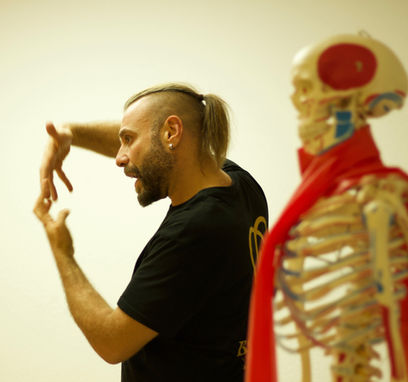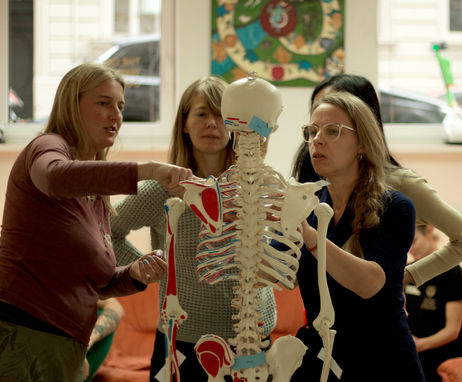Anatomy Basics
Anatomy Fundamentals for Precise & Safe Massage Techniques.
Whether you’re a beginner or an experienced massage therapist, this course teaches essential practical anatomy to enhance your massage techniques with precision and professionalism.
-
Clear & concise learning
-
Hands-on & interactive approach
-
Ideal for beginners & refresher training
-
Includes an anatomy handbook
-
Certificate of Participation
When: Oct 11 & 12 , 2025
14:00 to 19:30 hrs
Standard: €220
PayPal installments available
Who is this course for?
-
Career changers & beginners: Prepare for your massage career with essential anatomy fundamentals to enhance your practical skills.
-
Massage therapists, bodyworkers & movement professionals: Refresh your knowledge, refine your techniques, and enhance your hands-on skills in treatment and client care.

Why learn anatomy... at all?
-
More precise & effective treatments: Identify muscle structures accurately and adapt your techniques to each client’s needs.
-
Increased confidence & expertise: Strengthen your skills and build trust with your clients.
-
Better collaboration with healthcare professionals: Use industry terminology effectively and understand medical literature with ease.
-
Safe & professional client care: Recognize contraindications and refer clients to specialists when needed.
It was very nice the Basic Anatomy workshop in Bodymind Therapy. Enrico, Nora, and Francisca are super friendly and with a great sense of humor. The teaching method was very dynamic and didactic which I really appreciated. I think it is a good GO for anyone looking to have a first approach to basic muscular and skeletal anatomy.
— Rodrigo —
Student 2024
In this 2-day course, the following topics will be covered:
Key Terminology
-
Anatomical planes (sagittal, frontal, transverse)
-
Directional terms (e.g., superior/inferior, anterior/posterior, medial/lateral)
-
Anatomical movements (e.g., flexion/extension, adduction/abduction)
The Skeletal System & Joints
-
Major bones and their functions
-
Key joint types and their structures (e.g., ball-and-socket, condyloid joint)
The Muscular System
-
Muscle origin and insertion
-
Muscle movements: agonist, antagonist, synergist
-
Types of muscle contractions: isometric, concentric, eccentric
-
Primary muscles of the body












